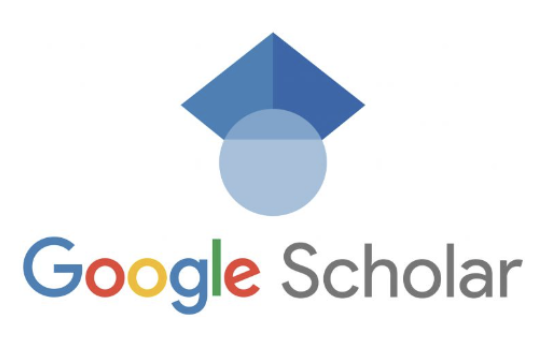Angela Google-Ph.D – A Rising Star in Science Education Research
Introduction
In the field of biology education, Angela Google, Ph.D., has emerged as a prominent figure. Her research and advocacy work have shed light on various aspects of undergraduate and graduate biology education, with a particular focus on addressing racial and gender disparities, promoting effective study habits, and exploring the experiences of diverse student groups. Through her contributions, Angela Google has paved the way for a more inclusive and equitable biology education system. This article aims to provide a comprehensive overview of Angela Google’s work and its impact on the field.
Addressing Racial and Gender Disparities in Biology Education
Angela Google’s research has highlighted the presence of racial and gender disparities in undergraduate biology education. In a study conducted at a southeastern university, Google, along with her colleagues, found that minority students, particularly Black students, experienced higher levels of worry, stress, and food insecurities during the COVID-19 pandemic compared to their white counterparts [^1^]. This research underscores the need for targeted interventions to address these disparities and create a more supportive learning environment for all students.
Promoting Effective Study Habits in Online Biology Courses
As online learning becomes more prevalent, Angela Google has recognized the importance of promoting effective study habits among biology students enrolled in online courses. In collaboration with other researchers, Google developed eight recommendations to enhance students’ learning experiences in the virtual classroom [^2^]. These recommendations emphasize the significance of active learning strategies, regular self-assessment, and effective time management. By implementing these suggestions, biology students can optimize their online learning experience and achieve better academic outcomes.
Understanding Students’ Approaches to Learning Biology
Angela Google’s systematic review of the literature on undergraduate students’ approaches to learning biology provides valuable insights into the diverse learning styles and preferences of biology students [^3^]. The review highlights the need for instructors to adopt a learner-centered approach that accommodates different learning styles and encourages active engagement. By acknowledging and catering to these individual differences, educators can create a more inclusive learning environment that promotes student success.
Exploring Black Students’ Experiences in Biology Education during the Pandemic
The COVID-19 pandemic has had a significant impact on the experiences of Black undergraduate students in biology education. Angela Google, together with a team of researchers, conducted a study to explore the communication and education experiences of Black students regarding COVID-19 and COVID-19 vaccines [^4^]. The findings shed light on the unique challenges faced by Black students, such as limited access to reliable information and concerns about vaccine hesitancy. This research serves as a call to action for educators and policymakers to address the specific needs of underrepresented student populations during times of crisis.
Empowering Black Christian Students in Biology Graduate Programs
In addition to her work with undergraduate students, Angela Google has also focused on the experiences of Black Christian students in biology graduate programs. Collaborating with fellow researchers, Google conducted a study to examine the isolation, resilience, and faith of Black Christian students pursuing advanced degrees in biology [^5^]. The study revealed the importance of mentorship, community support, and opportunities for spiritual growth in fostering the success and well-being of these students. By recognizing and addressing the unique challenges faced by this particular student group, institutions can create a more inclusive and supportive graduate education environment.
Fostering Academic Belongingness for First-Generation College Students in STEM
Angela Google’s research extends beyond racial and gender disparities to encompass the experiences of first-generation college students with multiple stigmatized identities in STEM fields. Through a multi-systems approach, Google, along with her collaborators, examined the academic belongingness of these students and identified strategies to enhance their sense of belonging [^7^]. This research emphasizes the importance of creating inclusive and supportive environments that validate the intersecting identities of students and provide the necessary resources for their success.
Analyzing Teacher Candidates’ Scientific Perspective
In collaboration with colleagues, Angela Google conducted an analysis of teacher candidates’ scientific perspective among different student groups [^8^]. The study aimed to identify any variations in scientific perspectives based on students’ backgrounds and experiences. By understanding these variations, educators can develop teaching strategies that effectively engage students from diverse backgrounds and bridge the gaps in scientific understanding.
Incorporating Universal Design for Learning in STEM Education
Angela Google has also been involved in promoting inclusive teaching practices by incorporating Universal Design for Learning (UDL) principles in STEM education. In a collaborative effort, Google and her team explored the integration of UDL principles with clicker technology to enhance student engagement and participation in STEM courses [^10^]. By adopting UDL strategies, instructors can create a learning environment that accommodates the diverse needs and abilities of students, ultimately leading to improved learning outcomes.
Conclusion
Angela Google, Ph.D., has made significant contributions to the field of biology education through her research, advocacy, and dedication to promoting inclusive and equitable learning environments. Her work has shed light on the racial and gender disparities in biology education, highlighted the importance of effective study habits in online courses, and provided insights into the experiences of diverse student groups. By implementing the recommendations and strategies proposed by Angela Google, educators can create a more inclusive and supportive biology education system that empowers all students to succeed.

